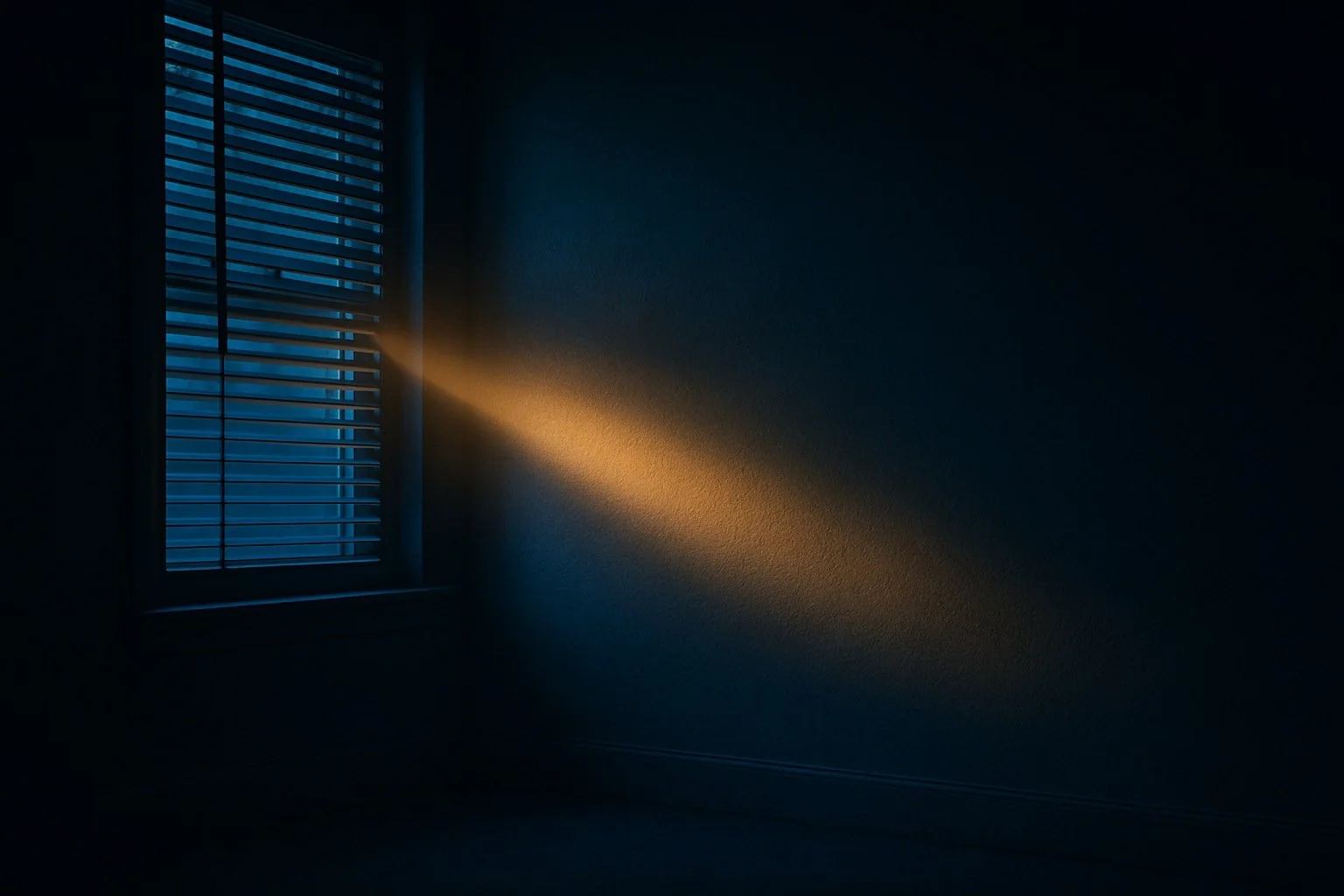The First Light
A thin line of pale gold comes through the blinds before the room is fully awake. It slides across the wall, quiet as breath. The air still holds the hush of night, yet something in the light begins its slow rise. A person opens their eyes without urgency. No alarm. No hurry. Just the day arriving in its oldest way.
The shift starts inside the eyes. They take in that soft brightness and send a clear message to the brain. Morning has begun. The body listens. Warmth gathers. The rhythm steadies. What feels like a small moment in a quiet room is the clock inside finding its mark.
By evening, the effect shows itself. The mind feels settled. The body feels ready. Sleep forms without strain, as if guided by a line drawn at dawn. The day and night answer each other when the first light is allowed to speak.
The sun has always known how to wake the living. It still does.
The Science Behind the Poetry
Most people know the feeling of a bedroom that wakes with them. Light finds the edge of the curtain, then the wall, then the face. There is no shock. No jolt. Just a slow, steady welcome. The postcard lingers in that first band of light and treats it not as scenery, but as a quiet signal the body has been reading for a long time.
The heart of the message is simple. The eyes are not only for seeing shapes and colors. They also read brightness and send that message straight to the inner clock. Morning has begun. The body listens. Warmth gathers. The rhythm steadies. What looks like a small moment in a still room is the instant the body quietly decides when night will return.
Studies following hundreds of adults day after day show the same pattern. Morning sunlight, even a short time before ten o’clock, reaches the eyes and steadies the inner clock. The timing of sleep shifts earlier. The mind quiets sooner in the evening. Sleep arrives with less struggle and feels more complete. The same light that wakes the world also teaches the body when to rest. Later sunlight helps some, but the first light of morning carries the strongest voice.
When this research steps into an ordinary life, it can look very simple. Someone moves their bed closer to the window that faces east. The first days feel no different. Then a pattern shows up. Waking comes with the slow brightening of the room. Evenings feel calmer. Bedtime arrives with less argument inside the body. Nights do not grow longer, but they grow kinder.
The sun has always known how to wake the living. It still does.
Reference(s): Journal of Health Psychology, 2025; BMC Public Health, 2025.
